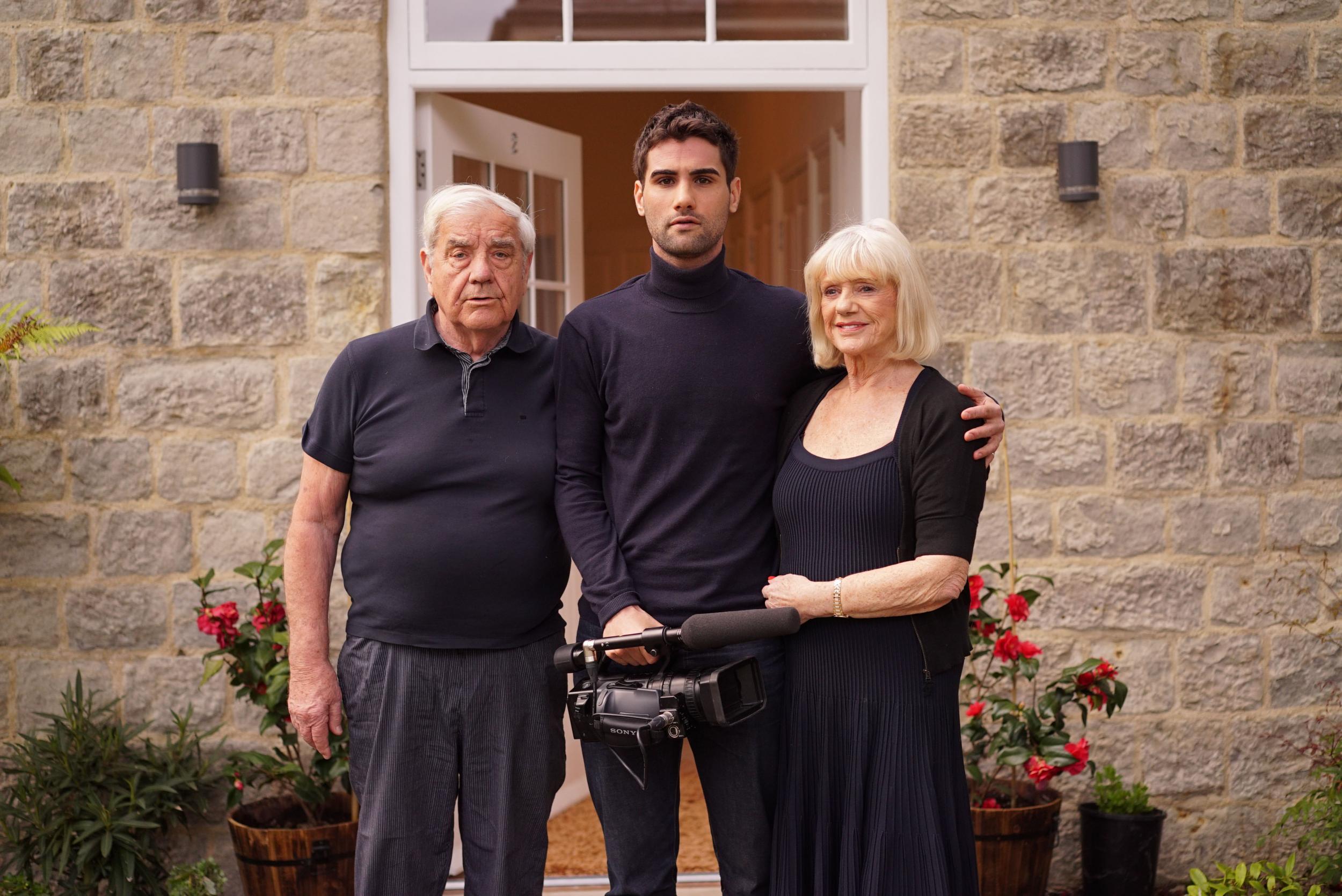TV preview, Grandad, Dementia and Me (BBC1, Tuesday 10.45pm): A problem of recognition
Plus The Windsors (Channel 4, Wednesday 10pm), The Barbara Windsor Story (Channel 5, Friday 8.30pm), In the Dark (BBC1, Tuesday 9pm), Poldark (BBC1, Sunday 9pm), Convicted for Love (Channel 4, Monday 10pm), Epidemic: When Britain Fought Aids (Channel 4, Sunday 10pm), Wimbledon (BBC1, BBC2 from today)

There’s a lot of talk about dementia around at the moment, and rightly so, as it is one of the things that we will all have to become used to dealing with, directly or otherwise, in our ageing population, if we have not already.
My Grandad, Dementia and Me is just one story, but an engaging one told by filmmaker Dominic Sivyer, who decided to document his grandfather’s struggles with short memory loss and violent mood swings. I felt as though I almost know the family myself, as, living in south London, their unusual surname is still familiar sight on the sides of lorries, and Henry “Tom” Sivyer, now 79 and in decline, was the founder of this flourishing transport firm four decades ago.
Now, though, anything and everything he has built is collapsing around him. Like most accounts of dementia – in this case vascular dementia caused by a reduction in blood flow to the brain – it is hard-going, but I am pleased to report that this particular take on dementia has a happy-ish ending. I hope that’s an incentive for you to stick with it.
I have to apologise because in my preview of Channel 4’s magical The Windsors last week I neglected to give a properly effusive write up of two of the actors – Ellie White and Celeste Dring, who play Princesses Beatrice and Eugenie respectively. Their minor royals double act is one of the best things about this parodic account of modern royal life, and I can almost sense their physical pain as they subject innocent words to the most extreme upper-class Sloaney drawl I have ever heard, like seeing the English language placed on a medieval rack and torn limb from limb. Such verbal acrobatics deserve high praise indeed. Beatrice and Eugenie really should have their own spin-off TV show (I mean Ellie and Celeste, not the real thing, as I can’t really be bothered with them). This week they’re helping Harry run a night club, by the way, and Kate Middleton, as I still think of her, gets called by sister Pippa “a bland, goody two-shoes head girl who bores the tits off everyone she meets”. Not so The Windsors, though.
The other the famous Windsor family, Barbara’s one, features heavily in Channel 5’s The Barbara Windsor Story. Babs is, of course, is almost as much of a symbol of national unity as her namesake, and held in similar esteem and affection. Cherish her too.
In the Dark is, believe it or not, yet another crime series featuring a “maverick cop”, this time based on Mark Billingham’s bestsellers. I sometimes wonder whether the people in tellyland might be able to discover the secret of perpetual motion of invent an inexhaustible source of energy, such is their facility at summoning up endless variations on the TV detective theme. This one stars Anna Buring as DI Helen Weeks and runs for four weeks. She’s pregnant, just like the plot. Alan Partridge’s idea of “Swallow”, a Norwich-based cop who bends the rules etc, cannot be far away now.
Elsewhere I can recommend Poldark, costumed Sunday night silliness as ever, and two documentaries from Channel 4 marking the 50th anniversary of the legalisation of sexual acts in private between consenting adults. Travel, then, in Convicted for Love, to another country, the Britain where men could be prosecuted, often enough as a result of entrapment, or blackmailed, and routinely discriminated against for jobs or promotions simply because of where they prefer to shove their genitals. We’ve also travelled a long way in our struggle against the 1980s “gay plague”, as it was termed, of Aids. It is difficult to imagine Margaret Thatcher’s cabinet discussing the ins and outs of anal sex, but it was a task that they took on with characteristic unflinching bravery. As a moment when the health and safety of the gay community was prioritised, rather than ignored, it was perhaps more of a political turning point than we realised at the time.
It seems silly given you can’t escape from it, but you may have noticed there’s a lot of tennis around, and such is its ubiquity of the Wimbledon thing that it hardly seems worth pointing out. Love all.
Subscribe to Independent Premium to bookmark this article
Want to bookmark your favourite articles and stories to read or reference later? Start your Independent Premium subscription today.





Join our commenting forum
Join thought-provoking conversations, follow other Independent readers and see their replies
Comments